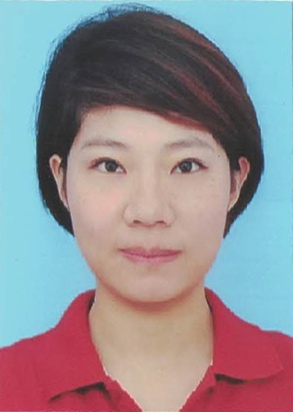
一、个人简介
王兰,博士,新葡的京集团35222vip副教授(绿色通道)。主要研究方向为,绿色可持续建筑的设计与评价方法,建筑能耗的预测与动态节能控制。截至2020年底,参与国家自然科学重点基金项目1项、香港特别行政区科研基金署资助项目3项;发表代表性期刊论文共6篇,其中一作SCI建筑工程领域权威期刊论文4篇、一作中文核心期刊1篇;发表一作会议论文3篇,其中一篇获得国际绿色建筑领域重要会议—Passive and Low Energy Architecture最佳会议论文奖。担任相关领域权威国际期刊,Applied Energy(IF:8.558), Energy and Buildings(IF:4.867),Environmental Pollution(IF: 6.792), Energies(IF:2.702)审稿专家。
二、教育背景
2016.09-2019.09香港城市大学,哲学博士(建筑节能方向)
2012.09-2015.01天津大学,建筑学硕士
2007.09-2012.07天津大学,建筑学学士
三、工作经历
2021.03至今,新葡的京集团35222vip,副教授(绿色通道)
2019.09-2021.02 香港城市大学,博士后研究员
2019.02-2019.06 美国劳伦斯伯克利国家实验室,访问学者
2015.03-2016.08 香港华艺设计顾问(深圳)有限公司,建筑师
2011.06-2011.09 中国建筑设计研究院·本土设计研究中心(原“崔愷工作室”),实习建筑师
四、主持或参与的科研项目
1.香港特别行政区科学研究基金署,General Research Funding,《基于自适应神经网络的建筑制冷系统能耗预测控制研究》,2018-01至2021-01,已结题,参研;
2.香港特别行政区科学研究基金署,General Research Funding,《地铁站自动扶梯客运量安全研究》,2016-01至2019-01,已结题,参研;
3.香港特别行政区科学研究基金署,General Research Funding ,《通过数值模拟人员引导建筑物疏散系统的开发》,2017-01至2020-01,已结题,参研;
4.国家自然科学基金委员会,重点项目,《寒冷气候区低能耗公共建筑空间设计理论和方法》,2014-01至2018-12,已结题,参研。
五、代表性建筑设计实践
1.深圳市光明新区红花山中学工程(设计)项目,参与,投标;
2.南方科技大学会堂(工程)设计,参与,投标;
3.深圳市第三高级中学综合楼设计,参与,建成;
4.深圳市沙河小学(工程)设计,参与,建成;
5.青海康巴艺术中心,参与,建成。
六、代表性期刊和会议论文
1.Wang R., Feng W.*, Wang L.,& Lu S.* (2020)‘A comprehensive evaluation of zero energy buildings in cold regions: Actual performance and key technologies of cases from China, the US, and the European Union’, Energy, 215, pp. 118992. (JCR Q1, IF:6.082)
2.Wang, L. *, Lee, E. W. M., Yuen, R. K. K. & Feng, W.( 2019) ’Cooling load forecasting-based predictive optimisation for chiller plants’ ,Energy and Buildings,198, pp. 261-274. (JCR Q1, IF:4.867)
3.Wang, L. *, Lee, E. W. M. & Yuen, R. K. K.(2018)’Novel dynamic forecasting model for building cooling loads combining an artificial neural network and an ensemble approach’, Applied Energy. 228, pp. 1740-1753. (JCR Q1, IF:8.558)
4.Wang, L.*, Lee, E. W. M. & Yuen, R. K. K.(2018) ‘A practical approach to chiller plants’ optimisation’ Energy and Buildings. 169, pp. 332-343. (JCR Q1, IF:4.867)
5.Wang, L., Huang, Q., Zhang, Q. *, Xu, H. & Yuen, R. K. K.( 2017)’Role of atrium geometry in building energy consumption: The case of a fully air-conditioned enclosed atrium in cold climates, China’ , Energy and Buildings. 151, p. 228-241.(JCR Q1, IF:4.867)
6. Wang, L. *, Huang, Q., Xu H., & Zhang Q. (2015). Influence of hotel atrium’s volume on its thermal condition and energy consumption in cold region. Building Energy Efficiency (中文核心, 建筑节能,), 12, 66-73.
7.Wang L., Lee E. ‘Critical analysis on research trend on passive and low energy architecture study through text data mining technique in the period of 2006 to 2018 ’, Proceeding of 35th PLEA Conference on Passive and Low Energy Architecture, A Coruna, 1st -3rd September 2020.(会议论文,获得Best Paper Award)
8.Wang L., Lee E., and Yuen R. ‘Input exploration for data-driven models
on forecasting building cooling loads considering only external disturbance’, Proceedings of Conference on Innovative Low-Carbon and Green Buildings in Subtropical Area, Taipei, 14-17 October 2018.(会议论文)
9.Wang L., Huang Q., Zhang Q., & Xu H. “Measurements and Analysis on
Winter Thermal Condition of Atrium space in Hotels Located in Cold Region of China”, Proceedings of Ecological and Wisdom: Towards a Healthy Urban and Rural Environment, 11th International Symposium on Environment-Behavior Research, Guangzhou, China, 2014.(会议论文)
七、其他
电子邮箱:lanwang@jnu.edu.cn
ORCID: 0000-0001-7241-290X



